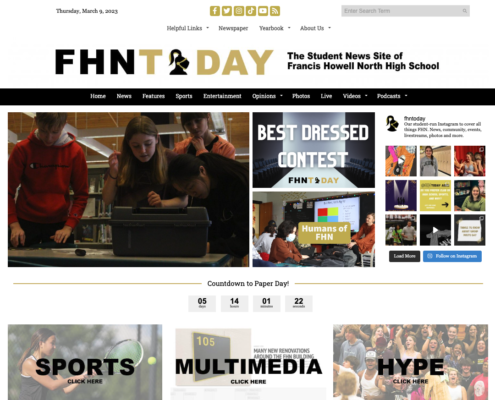Not known Details About International News Online
Table of ContentsTop Guidelines Of International News OnlineThe Buzz on International News OnlineWhat Does International News Online Mean?An Unbiased View of International News OnlineLittle Known Facts About International News Online.
The platform's name adjustment occurred in July 2023.) Some social media sites sites regardless of having reasonably little general audiences stand apart for having high shares of users that consistently most likely to the website for news. Approximately fifty percent of customers on X (53%) obtain news there. On the various other hand, only 15% of Snapchat customers frequently get information on the application.
journalists, however not for the general public, June 27, 2022 News on Twitter: Taken In by A Lot Of Users and Relied On by Numerous, Nov. 15, 2021 Greater than eight-in-ten Americans obtain news from electronic tools, Jan. 12, 2021 Measuring News Consumption in a Digital Era, Dec. 8, 2020 Numerous Americans Get Information on YouTube, Where News Organizations and Independent Producers Prosper Side-by-side, Sept.
An Unbiased View of International News Online
When asked whether social networks is a great or bad thing for democracy in their nation, an average of 57% across 19 nations state that it is a great thing (International News Online). In almost every nation, near half or even more state this, with the belief most usual in Singapore, where about three-quarters believe social networks is a good idea for freedom in their nation.
And in the U.S., only around a third think social media sites declares for freedom the smallest share among all 19 nations surveyed. In eight countries, those who think that the political system in their nation enables them to have an influence on politics are also much more most likely to claim that social media is a good idea for democracy.
Those who check out the spread of incorrect info online as a major danger to their nation are much less most likely to claim that social media is a good idea for democracy, compared with those who watch the spread of misinformation online as either a small hazard or otherwise a hazard in any way.
Little Known Questions About International News Online.
Older grownups in 12 countries are much less likely to claim that social media is a good thing for freedom in their nation when contrasted to their younger counterparts. In Japan, France, Israel, Hungary, the UK and Australia, the space between the youngest and earliest age teams is at least 20 portion points and ranges as high as 41 factors in Poland, where virtually nine-in-ten (87%) younger grownups say that social media has been a good thing for freedom in the country and only 46% of grownups over 50 say the same.
Across the six concerns evaluated, couple of tend to say they see no adjustments because of raised connectivity instead seeing points changing both positively and adversely and typically both at the same time (International News Online). An average of 84% say technical connectivity has made individuals much easier to manipulate with false details and rumors the most among the 6 issues checked
In the majority of countries, those who believe social media has actually made it easier to adjust people with false information and reports are likewise extra most likely to believe that social media has actually made individuals much more notified. When it involves national politics, the internet and social media are normally seen as read disruptive, with a median of 65% claiming that individuals are currently more divided in their political viewpoints.
The 6-Second Trick For International News Online
This feeling of risk is connected to the prevalent belief that individuals today are now much easier to manipulate with incorrect details and rumors many thanks to the internet and social media. Around half or even more in every nation evaluated shares this sight. And in position like the Netherlands, Australia and the UK, around nine-in-ten see individuals as more manipulable.
In South Korea, 90% of those under age 30 claim social media makes individuals much easier to manipulate, compared with 65% of those 50 and older. (Interestingly, U.S.-focused research has actually located reference older grownups are much more most likely to share misinformation than more youthful ones.) People with more education and learning are additionally typically more probable than those with much less education to state that social media has actually brought about individuals being easier to adjust.

International News Online - An Overview
In Sweden, Japan, Greece and the Netherlands, around eight-in-ten or even more share this view, while in Malaysia, a smaller sized bulk (56%) says the very same. Younger grownups tend to see social media making people much more enlightened than older adults do. Older adults, for their part, don't necessarily see the net and social media making people much less informed regarding what's happening in their country; rather, they're somewhat a lot more likely to describe these platforms as having little result on people's info degrees.
